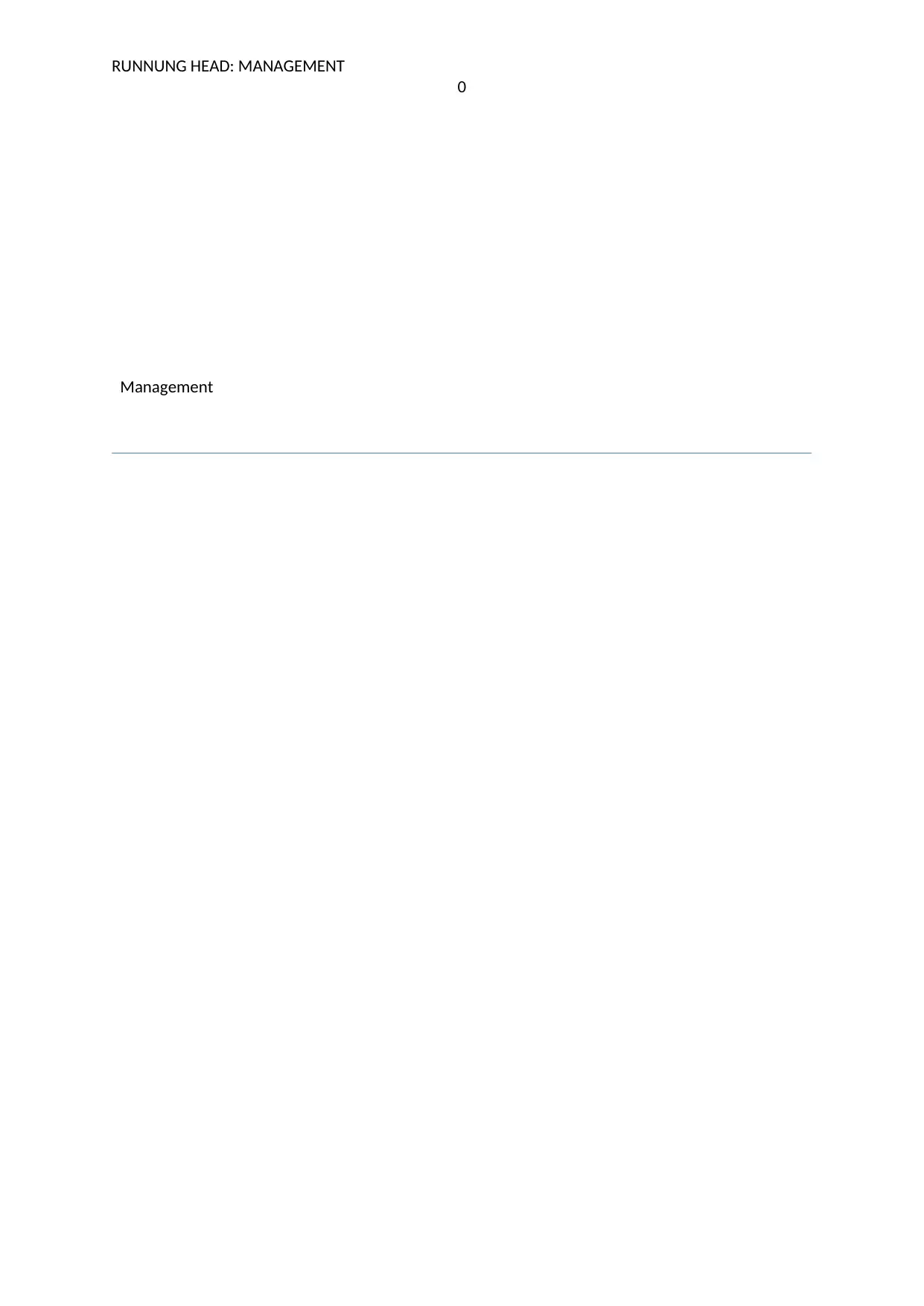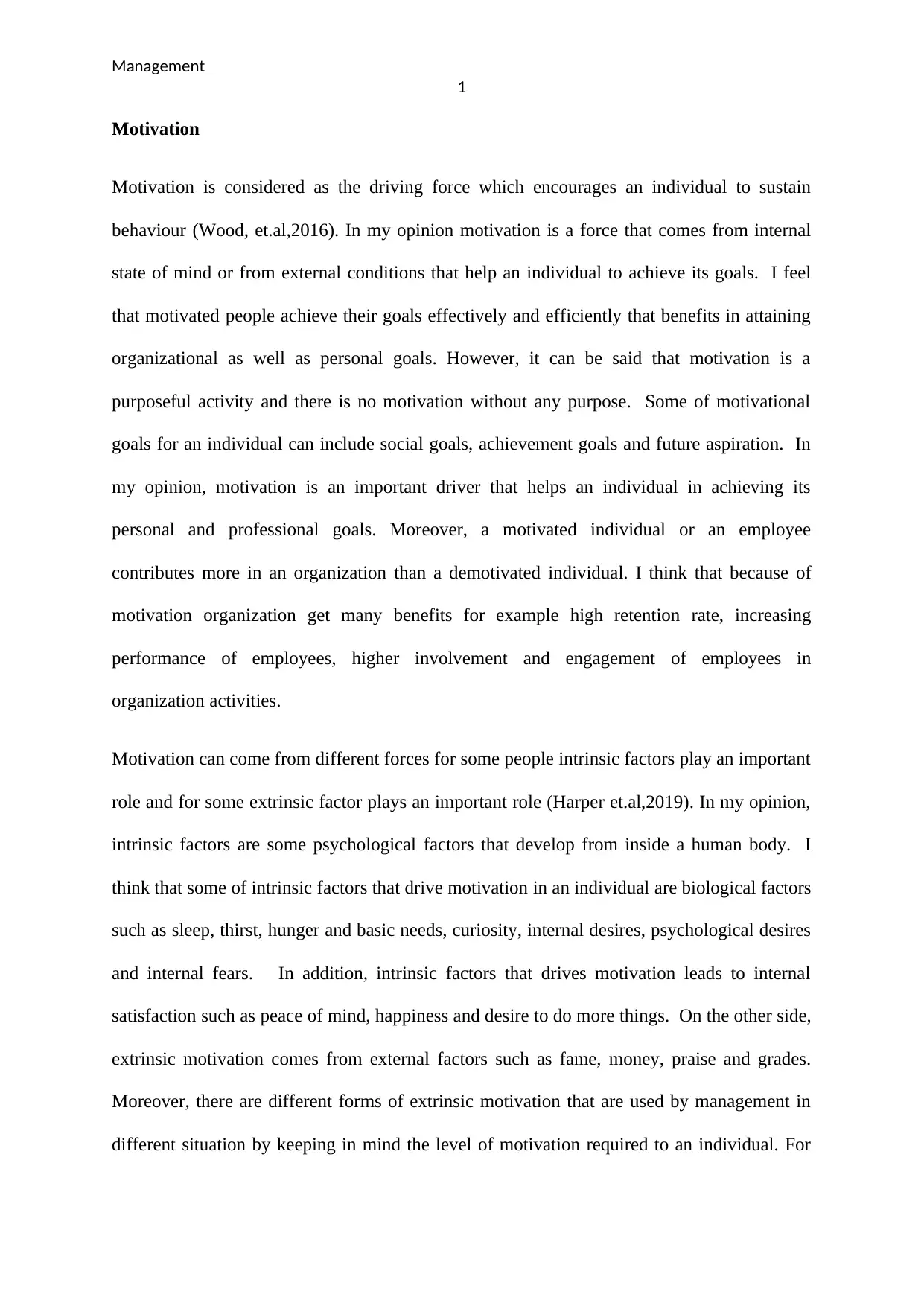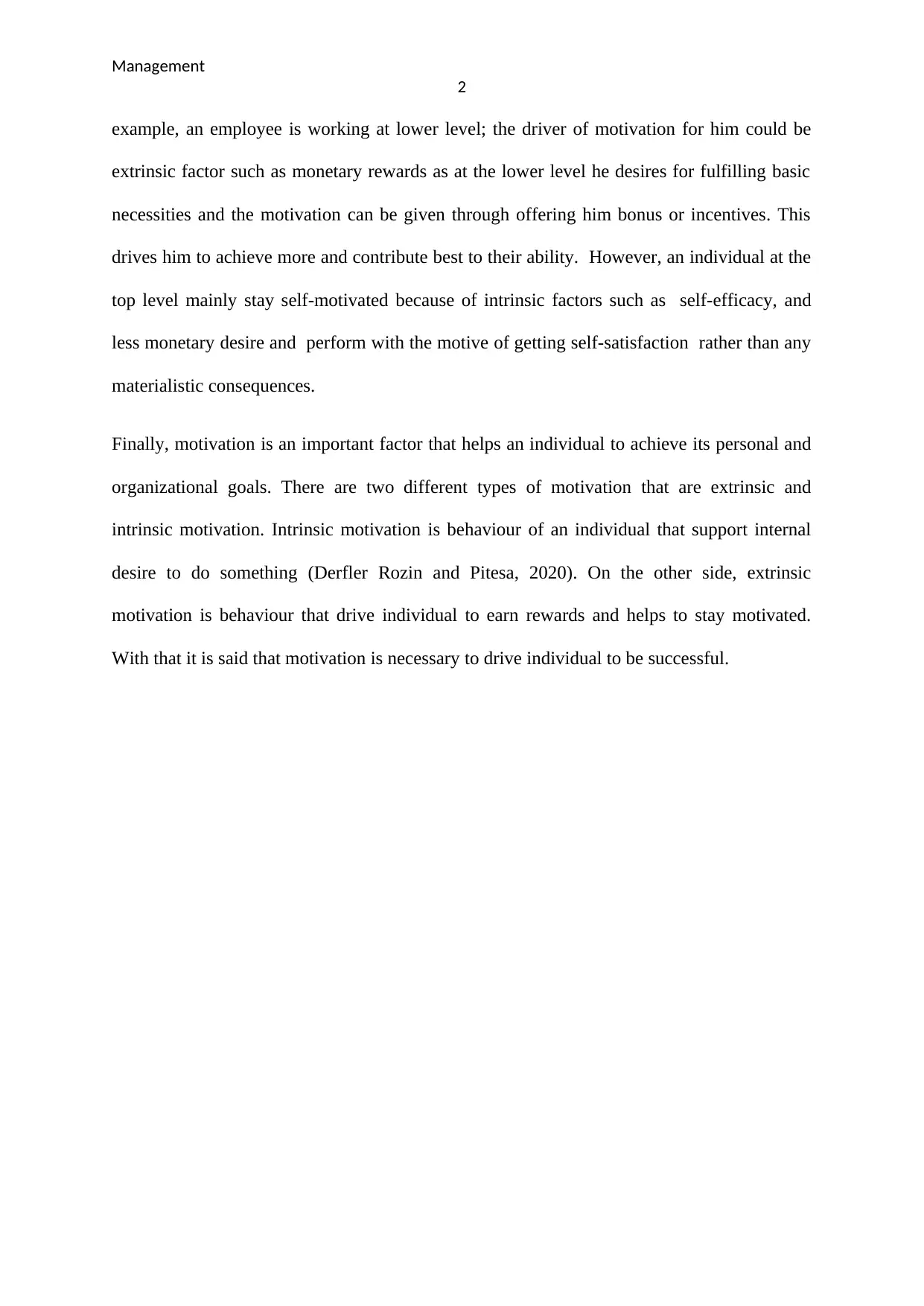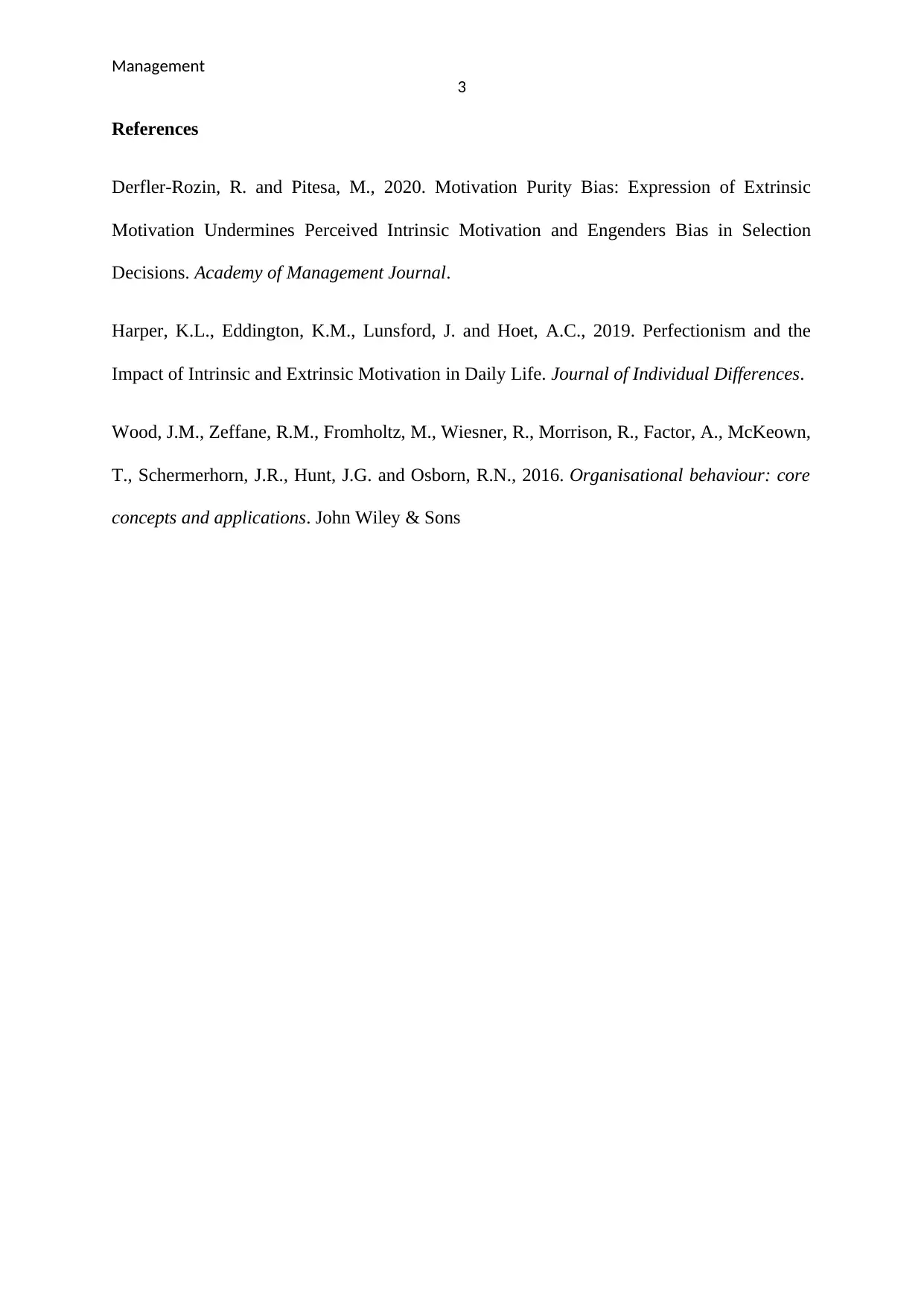Motivation in Management Report: Intrinsic, Extrinsic Factors Analysis
VerifiedAdded on 2022/08/18
|4
|667
|13
Report
AI Summary
This report delves into the concept of motivation within a management context. It explores how motivation, both intrinsic and extrinsic, influences individual and organizational goal achievement. The report highlights the importance of motivation, the different factors that drive it, and how these factors can be applied in different situations. It differentiates between intrinsic motivation, which stems from internal desires and psychological factors, and extrinsic motivation, which is driven by external rewards and incentives. The report also provides examples of how extrinsic motivation, such as monetary rewards, can be used to motivate employees at different levels. Ultimately, the report emphasizes the critical role of motivation in driving individual success and achieving organizational objectives. The report references key research to support its claims.
1 out of 4











![[object Object]](/_next/static/media/star-bottom.7253800d.svg)